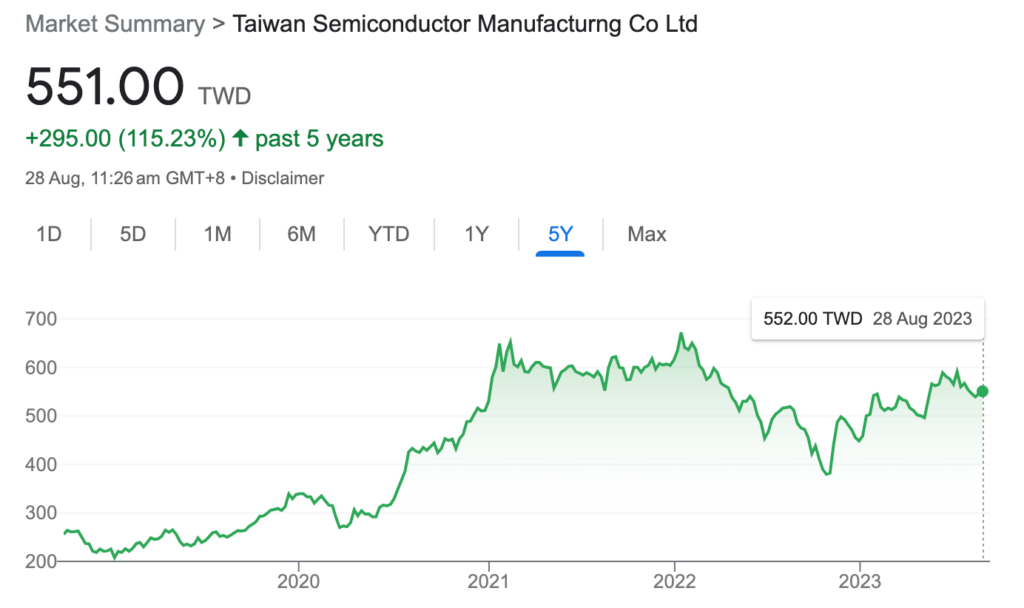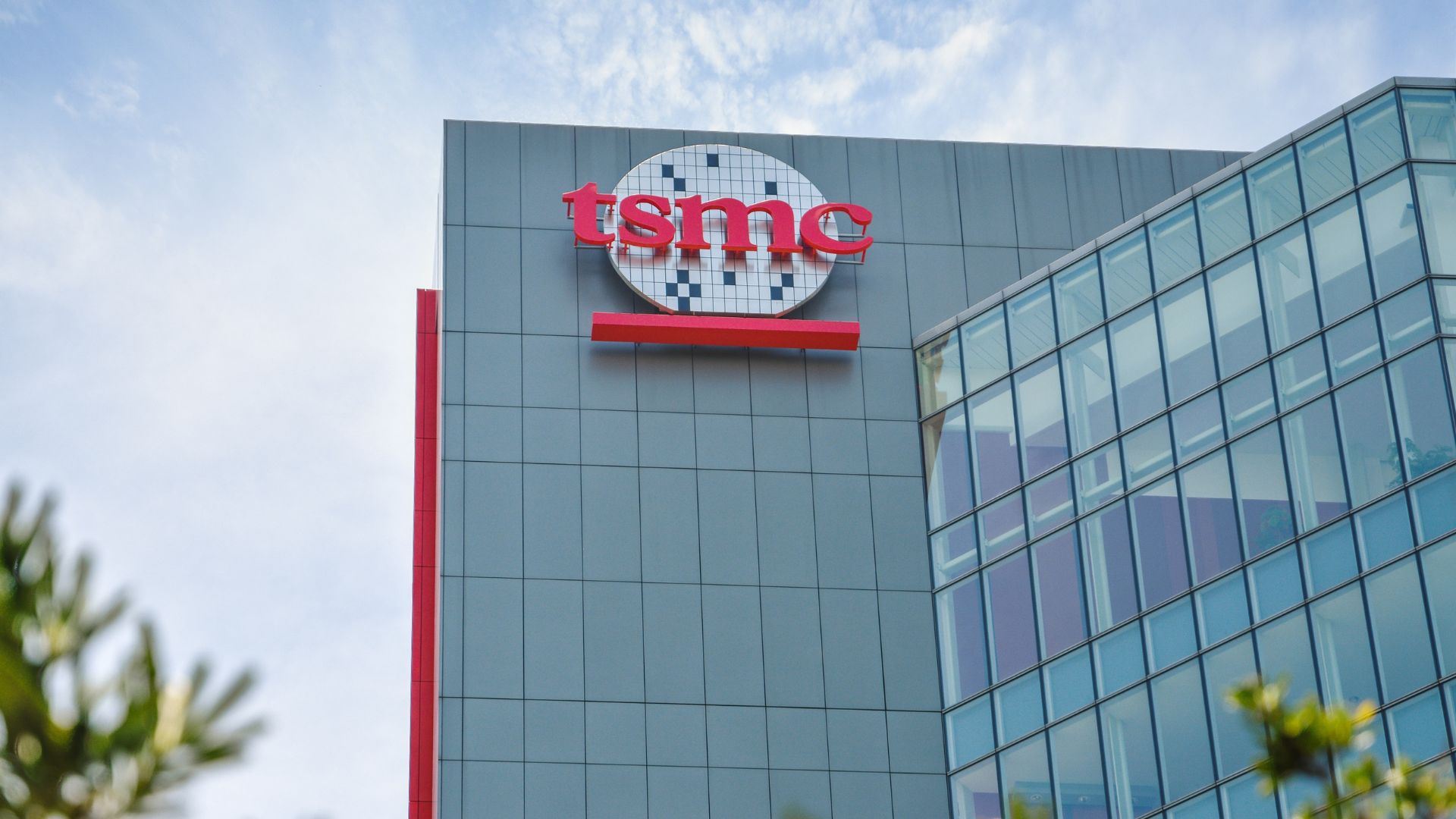In the world of tech, few players are as impactful as a giant like Taiwan Semiconductor Manufacturing Company (TSMC). They recently announced a staggering 10 billion Euro investment in a wafer fab in Dresden, Germany, marking their first foray into Europe. TSMC is also working on establishing branches in both the US and Japan. Such a long-term layout of TSMC will help the company reduce the risk of asset concentration, but this move will make TSMC face high overseas operating costs.
Global Expansion Amidst Challenging Geopolitics
When TSMC’s stock price plummeted from a historical high of TWD 688 in January 2022 to TWD 370 by October, the company’s monthly revenues kept breaking records. Why is the semiconductor giant’s stock price stuck in a quandary?

For context, in the 21st century, semiconductors are as pivotal as oil was in the 20th. Capturing 55% of the wafer market and a whopping 92% of the advanced process market, TSMC is undeniably a global titan. The US Government, however, raises eyebrows at such dominance – especially when the chips aren’t falling on their soil.
As the foremost semiconductor manufacturer, TSMC finds itself in a geopolitical hotspot. With the escalating US-China rivalry, the risk of conflict in the Taiwan Strait becomes palpable. The US, in its strategic maneuvering, aims to reduce reliance on Taiwanese chips while also cutting off Taiwan’s chip supply to China. TSMC believes Taiwan is its most efficient production base. Obviously, their belief clashes with the US agenda.
TSMC’s 2023 annual report shifted its tone from the pandemic and chip shortages to geopolitics. The company highlighted that clients are prioritizing manufacturing diversification across nations. While semiconductors’ central role is realized in modern economics, the intensifying geopolitical unrest underscores the importance of resilient chip supply chains.
Investment legend Warren Buffet, who bought into TSMC, divested entirely this year due to concerns over cross-strait peace and stability.
A Global Strategy Fraught with Risks
Bowing to pressure from the US and Taiwanese governments, TSMC agreed to establish a factory in Arizona, USA, set to be operational by 2024. Japan’s Kumamoto also finds a mention in their expansion blueprint.
While TSMC continues to invest heavily in Taiwan’s advanced manufacturing processes (like the 3nm and 2nm chips), plans are underway to shift 20% of their 28nm and below capacity outside of Taiwan, a strategy to diversify asset risk.
Interestingly, TSMC’s plans in Germany (which come with subsidies worth up to 50 billion Euros) ruffled competitors like GlobalFoundries, who threatened to lodge complaints with the EU.
It’s essential to note that TSMC’s founder, Morris Chang, was initially against overseas expansion. The semiconductor business, he believed, relies heavily on adjacent IC design, packaging, testing, and, most importantly, Taiwan’s talented workforce. Moving away meant hiking production costs.
Concerns Beyond Geopolitics
Apart from geopolitical issues, TSMC is currently facing three different challenges. Firstly, the company relies heavily on enterprise demand, which cannot match consumer demand in volume or consistency. With AI now centered on corporate requirements and noticeable Apple iPhone demand waning, the worry is an elongating device replacement cycle.
Secondly, being pressured into establishing high-cost, low-efficiency factories in countries like the US, Germany, and Japan mainly for subsidies. If these locations were truly profitable, TSMC would venture there without incentives. The risk with such subsidized ventures is evident.
Also, the increasing duration of technological breakthroughs means competitors like Samsung and Intel could catch up. While TSMC commands premium prices for its top-tier products, mid-tier offerings face stiff competition.
Navigating the unpredictable waters of geopolitics, market dynamics, and tech advancements, TSMC’s journey is more than just about chips. Whether TSMC can truly overcome these multifaceted challenges remains unclear. And investors would do well to keep a keen eye on the horizon.




